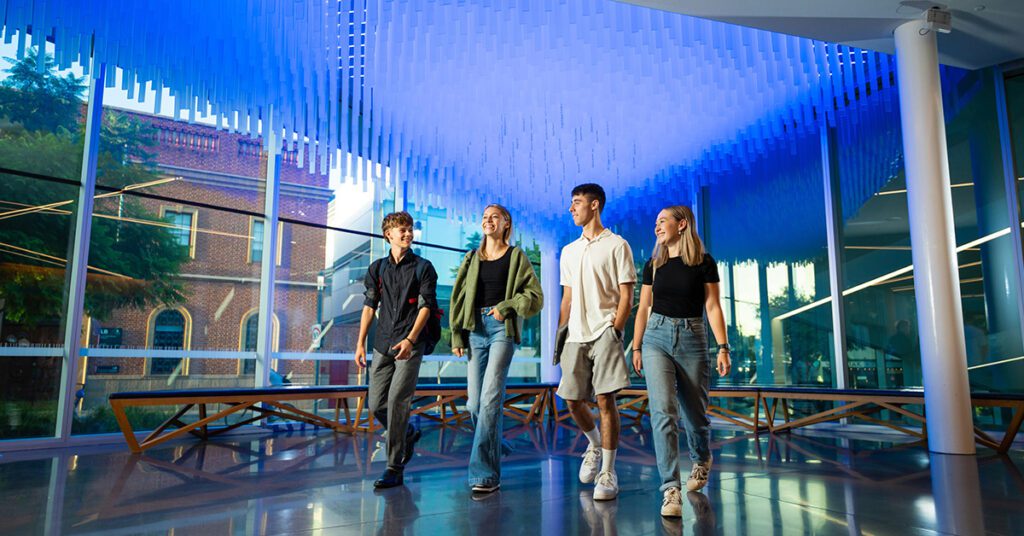Australian universities have gained a strong international reputation in recent years. Leading the way are the University of Sydney and the University of Melbourne, which consistently rank among the world’s top institutions. Now, Adelaide University — established in 2024 — has joined their ranks in a major way. For the first time, it has entered the global top 100 in the 2026 QS World University Rankings. It is ranked 82nd in the world and eighth nationally. This marks a significant benchmark for the university and South Australia, underscoring the state’s growing presence on the world stage.
Global rankings like QS shine a spotlight on academic performance and validate a university’s broader impact, international outlook, and future potential. The QS methodology evaluates universities based on metrics such as academic reputation, employer reputation, faculty-student ratio, and international faculty and student presence. It also increasingly considers sustainability and employment outcomes, reflecting the evolving expectations of higher education. Earning a Top 100 position signals the success of a university’s long-term vision to stand among the world’s most respected universities.
“This is an outstanding recognition for Adelaide University and one that will hold us in good stead as we approach our opening in early 2026, demonstrating the value and quality of our work, which will be amplified at scale as we combine our education and research capabilities, along with expansion of our international reach,” say co-VCs Prof Peter Høj AC and Prof David Lloyd.

Adelaide University begins its first year as a world top 100 university and member of Australia’s prestigious Group of Eight, with a promising future. Source: Adelaide University
Adelaide University was formed from the merger of South Australia’s largest and one of the nation’s oldest universities — the University of South Australia and the University of Adelaide.
As a member of the Group of Eight — Australia’s elite research university network — Adelaide University’s rise is underpinned by its reputation for academic and research excellence. Its five research themes are Creative & Cultural, Defence & National Security, Food, Agriculture & Wine, Personal & Societal Health, and Sustainable Green Transition.
Researchers are leading projects in critical areas such as health sciences, biomedical innovation, AI, and environmental sustainability. These include improving heart failure treatments or using AI to fight modern slavery in supply chains.
“This QS ranking is also beneficial as we seek to further attract bright minds from around the world to the State of South Australia and into our leading education and innovation ecosystem,” Profs. Lloyd and Høj say.

Adelaide University offers world-class disciplines, experts, and global connections to launch students into their future, regardless of where they come from. Source: Adelaide University
Real-world relevance
Undergraduate, postgraduate and research programmes across science, engineering, health, humanities, and more pair academic rigour with practical experience. Undergraduates can pursue degrees like Bachelor of Arts majoring in Anthropology, Bachelor of Engineering (Chemical), and Bachelor of Criminology and Criminal Justice, among others. For those continuing their studies, postgraduate options include programmes like the Master of Business Administration, Master of Artificial Intelligence and Machine Learning, and Master of Architecture. Research opportunities are also available through degrees such as the Doctor of Philosophy, Master of Philosophy, and Master of Research offered across 22 study areas.
This outcome-driven education model makes the university an attractive choice for international students, and that appeal is amplified by its location. Situated in one of Australia’s most liveable cities, its key attributes include a reported high level of safety and affordability, often cited in comparison to other Australian capitals.`According to StudyAdelaide, international students typically spend around AUD $350 to $700 per week on living costs, depending on lifestyle and accommodation choices. This makes Adelaide a cost-effective option compared to cities like Sydney and Melbourne, without compromising on quality of life.
The city’s design and infrastructure are used for educational and residential purposes by students as well. For instance, the Adelaide City campus sits on Adelaide’s historic North Terrace, right in the heart of the city’s cultural district, so students live steps away from museums, galleries and city parks. They also benefit from easy access to public transport, study spaces, fully equipped libraries, high-tech laboratories, and innovation hubs. The city also offers purpose-built student accommodations, on-campus health and wellbeing services, and a wide range of cafes, markets, and recreational facilities within walking distance.
Beyond infrastructure, support services for international students include orientation programmes, counselling and career advice. In the city, students can join clubs, sports teams and social activities that help build friendships and networks. This is further aided by the city’s multicultural population. In fact, 44.2% of City of Adelaide residents were born overseas. This figure means nearly half of the city’s population has international origins, a strong indicator of a diverse community.

